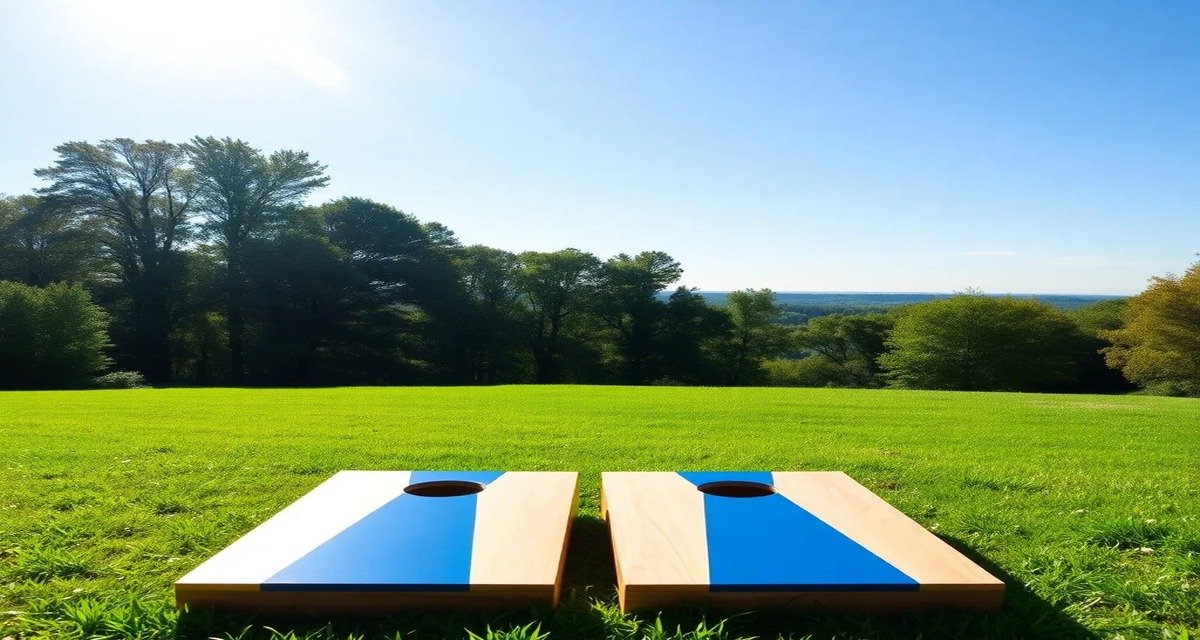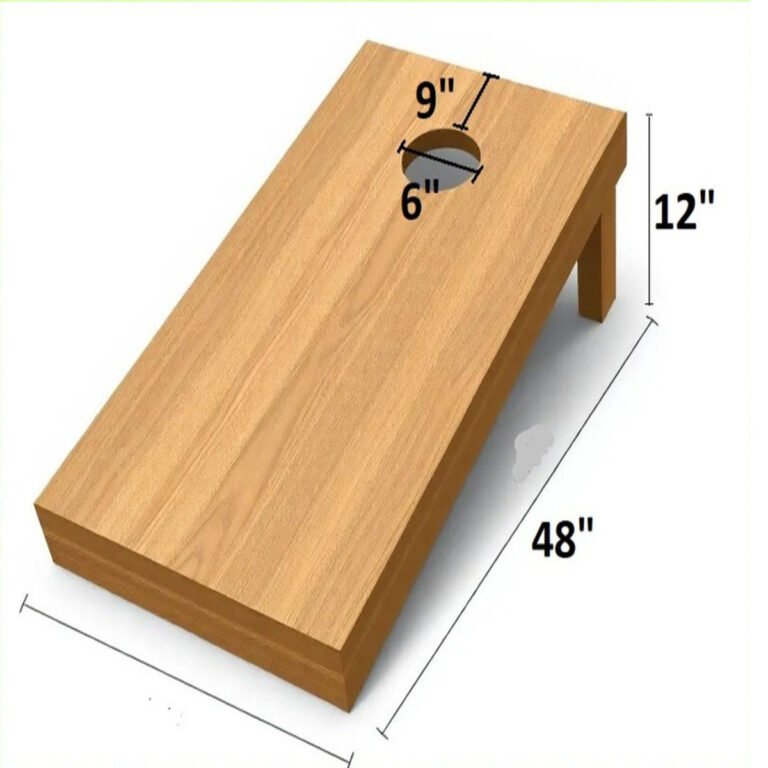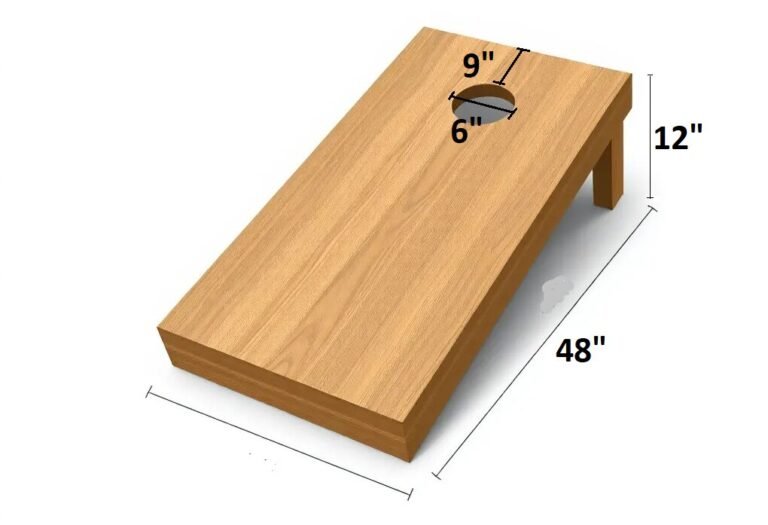Cornhole Tips for Beginners: Improve Your Toss with ACL Bags
Cornhole is a game that combines fun, skill, and strategy, making it a perfect activity for all ages and skill levels. Whether you’re new to cornhole or eager to sharpen your skills, this guide will equip you with essential cornhole tips for beginners. From understanding the rules to refining your throwing technique, we’ll explore everything you need to know to improve your game. Read on to discover how to play like a pro with insights into equipment, strategies, and advanced techniques.
1. What Is Cornhole and Why Should Beginners Start Playing?
Cornhole is a game that requires precision, focus, and a bit of luck. Played with bean bags and a sloped board with a single hole, it’s a game to play at tailgates, family gatherings, or even at competitive events. For beginners, it’s easy to pick up, fun to play, and endlessly rewarding as you improve your skills.
The simplicity of the rules and the social nature of cornhole make it a great game for bonding with friends and family while challenging yourself to score more points.
2. Essential Equipment: What Do You Need to Play Cornhole?
The Cornhole Board
A standard cornhole board measures 48 inches long and 24 inches wide, with the hole 9 inches from the top. The back of the board is raised to create a slope, making the bags landing on the board or sliding into the hole exciting to watch.
The Cornhole Bag
Choosing the right cornhole bag is crucial. A regulation bag weighs 16 ounces and is filled with either corn kernels or resin pellets. The bag’s weight and material can impact your control and accuracy, making them essential to consider for both casual and competitive play.
3. How to Start Playing Cornhole: Basic Rules for Beginners
To start playing, set up the boards 27 feet apart for regulation play. Players take turns throwing one bag each toward the opposite board. The game continues until one player or team reaches 21 points wins.
Key Cornhole Rules for Beginners
- Each player must stay behind the foul line when pitching.
- A bag that lands on the board earns 1 point, while a bag in the hole earns 3 points.
- Bags that touch the ground or are bags off the board score no points.
4. Common Mistakes Beginners Make in Cornhole
Throwing the Bag Too Hard
One of the most crucial cornhole tips for beginners is to focus on control rather than power. One of the biggest mistakes beginners make is throwing the bag too hard. A good toss requires a perfect balance between power and finesse.
Skipping Practice
Many new players underestimate the importance of practice. Regular practice throwing from different distances can help you adapt to various game scenarios and improve your accuracy.
5. Mastering Cornhole Tosses: Throwing Techniques That Work
Holding the Bag
To throw effectively, grip the cornhole bag firmly by its edges or corners. Position your hand on the side of the bag to control its spin.
Releasing the Bag Smoothly
Your throwing hand should guide the bag in a straight line. Avoid jerky movements, and aim for the front of the hole to ensure the bag slides in or lands flat on the board.
Following these cornhole tips for beginners will help you develop confidence in your toss and set you up for success.
6. Understanding the Cornhole Scoring System
Cornhole uses a cancellation scoring system, where points scored by opposing players in a round cancel each other out. For example:
- If Player A scores 7 points and Player B scores 5, Player A earns 2 points for the round.
The score at the end of each round determines who goes first in the next. To score points consistently, focus on precision and avoiding fouls.
7. Tips to Improve Your Cornhole Skills and Accuracy
Set Up a Practice Routine
Regular practice sessions are key to improvement. Begin by aiming for consistent placement of bags on the board before attempting trick shots.
Experiment with Different Tosses
To refine your skills, try different grips and throwing angles. Whether you’re aiming for a bag in front of the hole or going for a direct shot, experimenting helps you adapt to various playstyles.
These cornhole tips for beginners emphasize consistency and precision, ensuring you build a strong foundation for advanced play.
8. Advanced Strategies: Take Your Game to the Next Level
For those looking to compete, understanding ACL rules is essential. Join a cornhole league to challenge yourself against skilled players and learn advanced strategies, such as blocking your opponent’s throws or using precise spins to outmaneuver them.
9. Joining the Cornhole Community: Leagues, Tournaments, and More
Cornhole is more than just a game; it’s a community. Whether you’re new to cornhole or a seasoned player, participating in local or national tournaments can enhance your experience. Organizations like the American Cornhole Association and American Cornhole League offer opportunities to connect with other enthusiasts and compete at high levels.
Key Takeaways
- Cornhole is a game that combines skill, strategy, and social fun.
- Start by mastering the basic rules of cornhole and understanding the scoring system.
- Practice regularly to improve your accuracy and develop your cornhole skills.
- Join a cornhole league to challenge yourself and connect with the community.
With these tips and strategies, you’ll be well on your way to becoming a cornhole pro. Grab your bags and start playing today!






